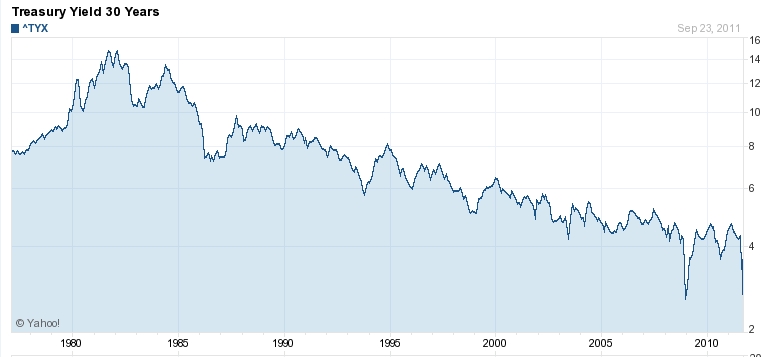What factors are to be considered when deciding to go with a 15 year fixed vs a 30 years fixed? Pretty simple really; I could make the payments on a 15 year fixed, but at today's low interest rates, am I better off taking the difference and investing it?
-
Is this a new loan or a refinance? What are the rates for 30 and 15 yr loans?– JTP - Apologise to Monica ♦Commented Sep 26, 2011 at 2:11
-
For me it would be a new loan - as far as rates, I've seen 3.2% and 3.9% respectively.– MattCommented Sep 26, 2011 at 18:02
-
I stand by my response below, if a guaranteed 3.2% return, and a paid in full house brings you peace, no problem. So long as you have the cash flow so the extra money to go 15 doesn't crimp your lifestyle.– JTP - Apologise to Monica ♦Commented Sep 26, 2011 at 19:22
5 Answers
The biggest factor is: Are you really going to invest the difference? It is easy to say you will now, but unless you have a ton of discipline or some form of automatic investing, that is a hard thing to do in practice.
Another consideration is that the 30 year loan will usually cost you more over the life of the loan because of the length of it.
Another option is to take the 30 year loan and pay at the rate you would with a 15. Then you get the benefit of paying it down quickly, but have the flexibility to only make smaller than usual payments in any month where you have a financial emergency and need the extra cash.
Mortgage rates are at record lows. The 30 yr fixed is now below 4%, if you are in the 25% bracket and itemize (state income tax, property tax, donations, easy to pass the minimum) it costs you 3% post tax. This is the rate of long term inflation, effectively making this money free.

You are likely to be able to average a far greater return than this mortgage is costing you. These rates may last another year or two, but long term, they are an anomaly.
ETFs such as DVY (the Dow high dividend stocks) are yielding over 3.75%, 3.2% after the 15% cap gain tax. i.e. you get a small positive return, and the potential for capital gains. If this ETF rises just 3%/yr it's all profit above your cost of money.
That said, there are those who sleep better with a paid in full house, regardless of the rate. To that extreme, I've read those who make paying their mortgage a priority ahead of funding their matched 401(k). While I can guess what the market will return, but can't know what will actual happen, it's foolish to skip one's match. They reason that the market can crash, I reply the 401(k) has to have a short term fund, money market or T-bill type returns, but a 100% match is a no-brainer.
Using an estimated 4% for the 30 and 3.5% for the 15, the payment on the 15 yr mortgage will be 50% higher, $1430 (15yr) for $200K vs $955 for the 30. How does this play in your budget? Do you have an adequate emergency fund? Are you funding your retirement plan at a decent level?
In the end, there is no right answer, just what's right for you. Understanding the rest of your financial picture will get you more detailed advice. Not knowing your situation limits the answers.
Edit 6/30/2015 - When I wrote this answer, the DVY was trading at $48.24. $100,000 invested would have given off $3187/yr after a 15% dividend tax rate. At $75/share now, the $100,000 investment would be worth $155,472 and yielding $5597 for a net $4757 after tax. The choice to go DVY would have been profitable from the start, with room now for a 35% crash before losing any money.
In general, it makes sense to go for the 15 year fixed if you can afford it, as you'll pay down far more principal than if you go for a 30 year.
Take a peek at the amortization tables for two loans, keeping in mind that the average American lives in a house for 7 years.
The best way to look at it is this:
- If you owned the house outright, would you borrow against it to invest? (Do you want to leverage your assets?)
I would suspect most people would say no. Most people do not have the time, skill, or risk tolerance to be able to leverage capital as large as the value of their own home.
Remember that a 15-year fixed has a slightly lower interest rate than a 30-year fixed (difference of 0.5–1%). If you won't have the discipline to invest every cent left in your pocket, then you are better off with the 15-year and the lower rate.
There is another factor to consider when refinancing is the remaining term left on your loan. If you have 20 years left, and you re-fi into another 30 year loan that extends the length that you will be paying off the house for another 10 years. You are probably better off going with 20, or even 15. If this is a new loan, that is less of an issue, although if you moving and buying a house in a similar price range it is still something to consider. My goal is to have my house paid off before I retire (hopefully early semi-retirement around 55).
